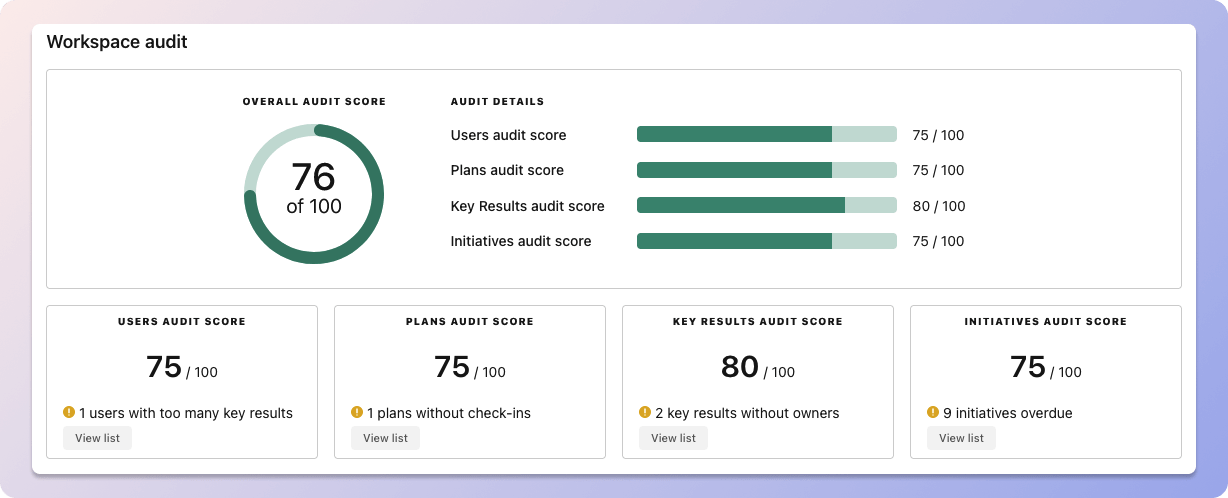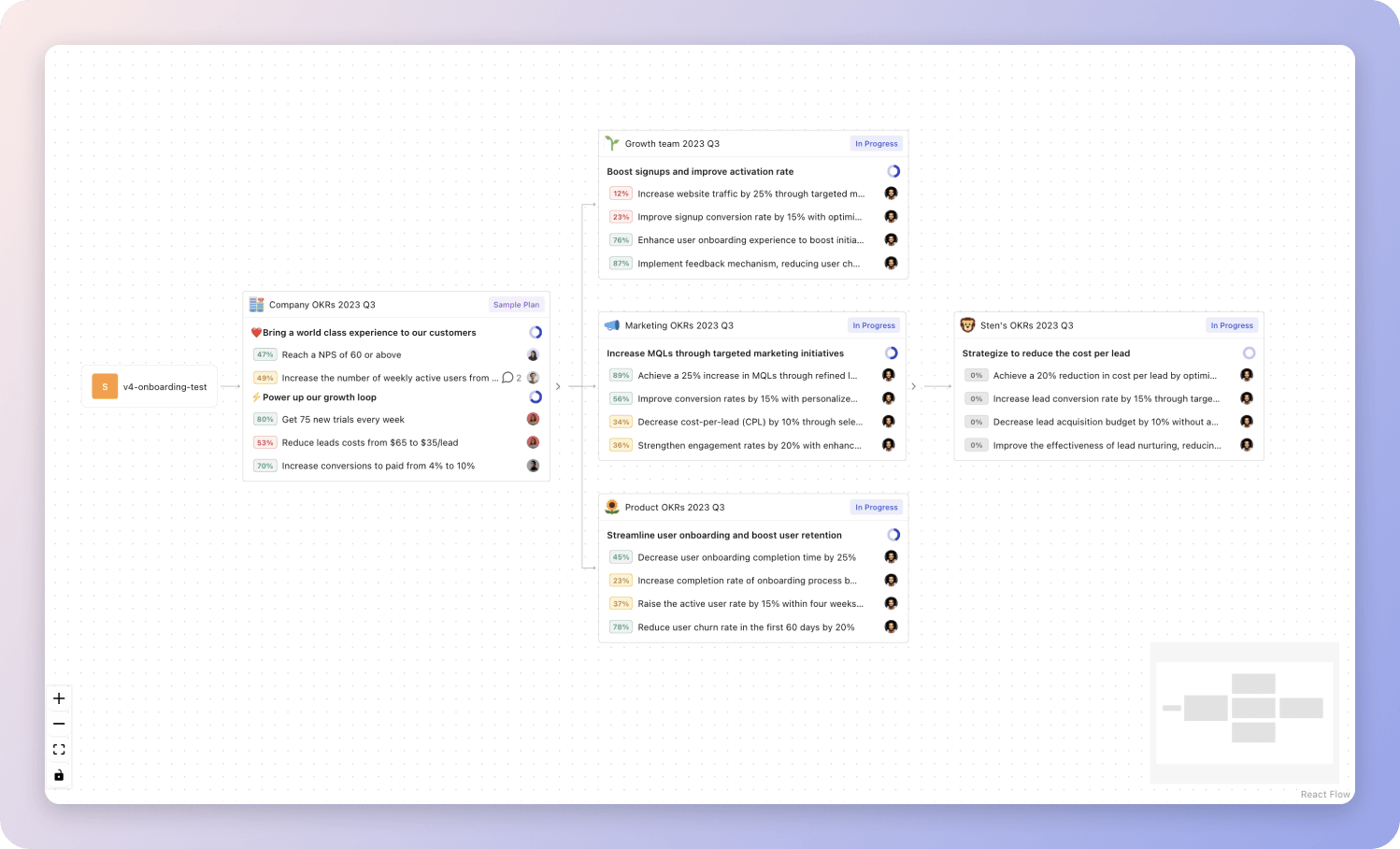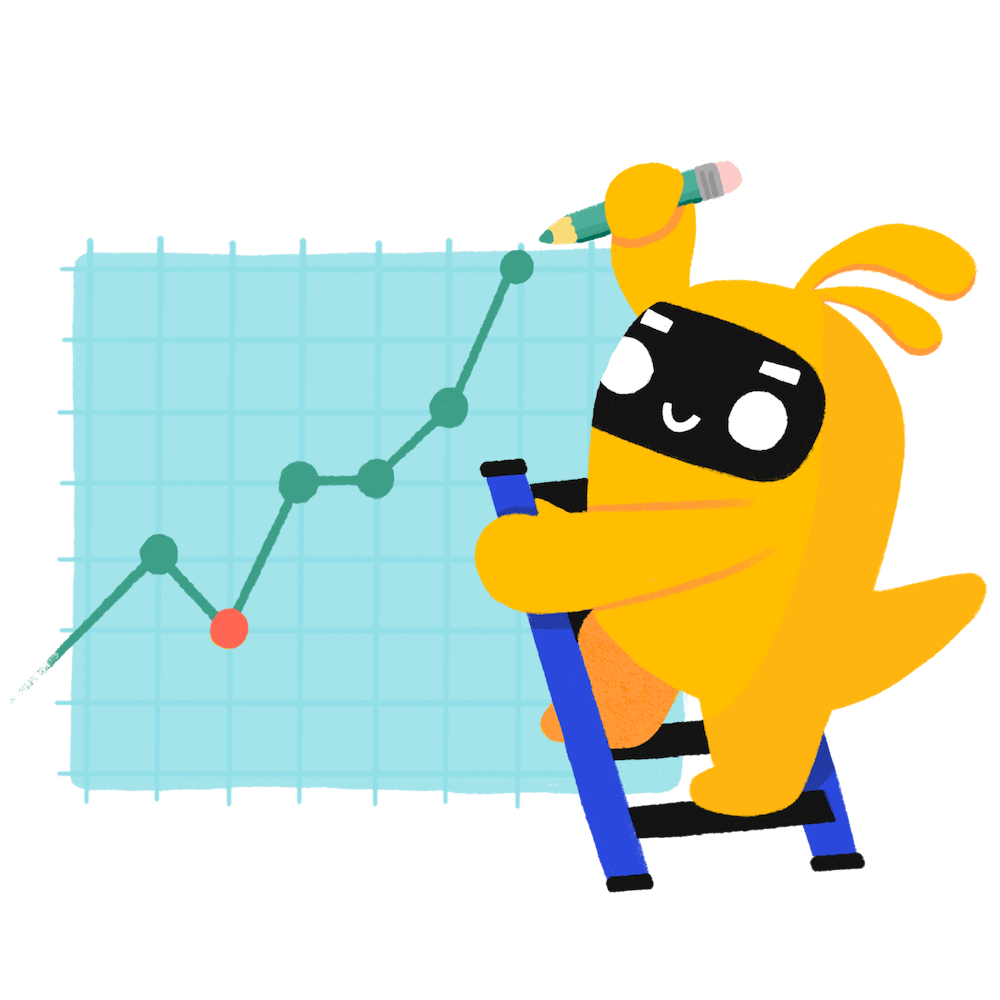1 customisable OKR examples for Scientific Support Team
What are Scientific Support Team OKRs?
The Objective and Key Results (OKR) framework is a simple goal-setting methodology that was introduced at Intel by Andy Grove in the 70s. It became popular after John Doerr introduced it to Google in the 90s, and it's now used by teams of all sizes to set and track ambitious goals at scale.
Creating impactful OKRs can be a daunting task, especially for newcomers. Shifting your focus from projects to outcomes is key to successful planning.
We have curated a selection of OKR examples specifically for Scientific Support Team to assist you. Feel free to explore the templates below for inspiration in setting your own goals.
If you want to learn more about the framework, you can read our OKR guide online.
Building your own Scientific Support Team OKRs with AI
While we have some examples available, it's likely that you'll have specific scenarios that aren't covered here. You can use our free AI generator below or our more complete goal-setting system to generate your own OKRs.
Feel free to explore our tools:
- Use our free OKR generator
- Use Tability, a complete platform to set and track OKRs and initiatives, including a GPT-4 powered goal generator
Our customisable Scientific Support Team OKRs examples
You'll find below a list of Objectives and Key Results templates for Scientific Support Team. We also included strategic projects for each template to make it easier to understand the difference between key results and projects.
Hope you'll find this helpful!
1. OKRs to establish insightful scientific mentoring program for laboratory procedures
Establish insightful scientific mentoring program for laboratory procedures
Achieve an average score of 4.5 on feedback form regarding program effectiveness
Offer additional support and resources for participant success
Regularly evaluate and update the program based on feedback
Develop high quality, engaging and relevant content for the program
Curate a comprehensive syllabus covering the scientific aspects by week 6
Arrange topics into a six-week course outline
Draft detailed weekly lesson plans
Identify key scientific topics to include in the syllabus
Secure at least 3 experts from relevant scientific fields as mentors
Draft personalized emails inviting them to mentor
Schedule and conduct one-on-one meetings with them
Identify 3 experts in relevant scientific fields
Scientific Support Team OKR best practices to boost success
Generally speaking, your objectives should be ambitious yet achievable, and your key results should be measurable and time-bound (using the SMART framework can be helpful). It is also recommended to list strategic initiatives under your key results, as it'll help you avoid the common mistake of listing projects in your KRs.
Here are a couple of best practices extracted from our OKR implementation guide 👇
Tip #1: Limit the number of key results
Focus can only be achieve by limiting the number of competing priorities. It is crucial that you take the time to identify where you need to move the needle, and avoid adding business-as-usual activities to your OKRs.
We recommend having 3-4 objectives, and 3-4 key results per objective. A platform like Tability can run audits on your data to help you identify the plans that have too many goals.
 Tability's audit dashboard will highlight opportunities to improve OKRs
Tability's audit dashboard will highlight opportunities to improve OKRsTip #2: Commit to weekly OKR check-ins
Having good goals is only half the effort. You'll get significant more value from your OKRs if you commit to a weekly check-in process.
Being able to see trends for your key results will also keep yourself honest.
 Tability's check-ins will save you hours and increase transparency
Tability's check-ins will save you hours and increase transparencyTip #3: No more than 2 yellow statuses in a row
Yes, this is another tip for goal-tracking instead of goal-setting (but you'll get plenty of OKR examples above). But, once you have your goals defined, it will be your ability to keep the right sense of urgency that will make the difference.
As a rule of thumb, it's best to avoid having more than 2 yellow/at risk statuses in a row.
Make a call on the 3rd update. You should be either back on track, or off track. This sounds harsh but it's the best way to signal risks early enough to fix things.
How to turn your Scientific Support Team OKRs in a strategy map
The rules of OKRs are simple. Quarterly OKRs should be tracked weekly, and yearly OKRs should be tracked monthly. Reviewing progress periodically has several advantages:
- It brings the goals back to the top of the mind
- It will highlight poorly set OKRs
- It will surface execution risks
- It improves transparency and accountability
Spreadsheets are enough to get started. Then, once you need to scale you can use a proper OKR platform to make things easier.
 Tability's Strategy Map makes it easy to see all your org's OKRs
Tability's Strategy Map makes it easy to see all your org's OKRsIf you're not yet set on a tool, you can check out the 5 best OKR tracking templates guide to find the best way to monitor progress during the quarter.
More Scientific Support Team OKR templates
We have more templates to help you draft your team goals and OKRs.
OKRs to boost HR effectiveness in facilitating organization and people growth
OKRs to obtain position as Director of Product
OKRs to develop a widely distributed Health and Safety Awareness Bulletin
OKRs to reinstate Intel's victorious culture and unify its talent pool
OKRs to enhance user engagement on app and website
OKRs to boost academic rigor for improved college readiness
OKRs resources
Here are a list of resources to help you adopt the Objectives and Key Results framework.
- To learn: What is the meaning of OKRs
- Blog posts: ODT Blog
- Success metrics: KPIs examples
Create more examples in our app
You can use Tability to create OKRs with AI – and keep yourself accountable 👀
Tability is a unique goal-tracking platform built to save hours at work and help teams stay on top of their goals.
 1 Create your workspace
1 Create your workspace 2 Build plans in seconds with AI
2 Build plans in seconds with AI 3Track your progress
3Track your progress